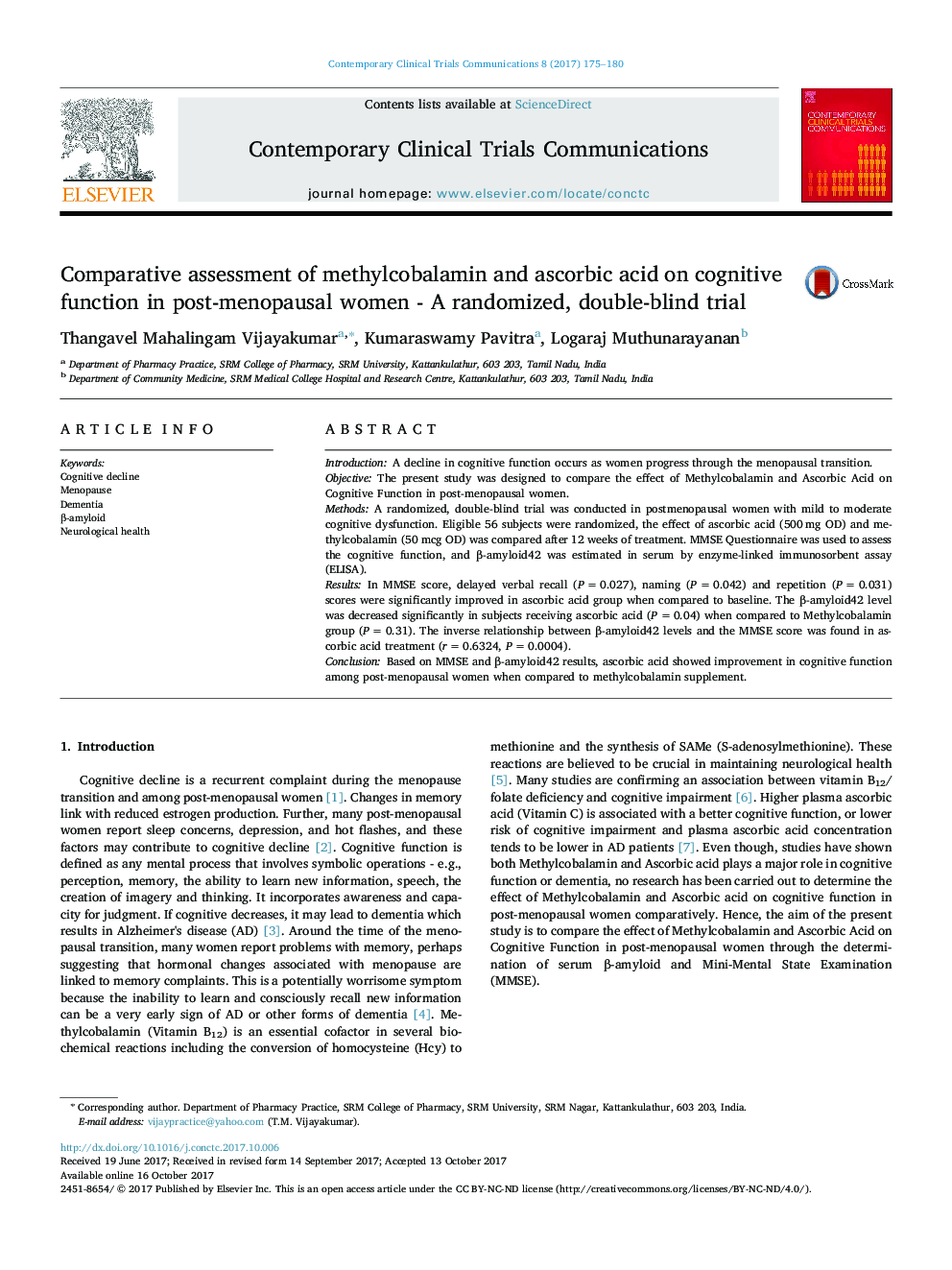| Article ID | Journal | Published Year | Pages | File Type |
|---|---|---|---|---|
| 5549635 | Contemporary Clinical Trials Communications | 2017 | 6 Pages |
IntroductionA decline in cognitive function occurs as women progress through the menopausal transition.ObjectiveThe present study was designed to compare the effect of Methylcobalamin and Ascorbic Acid on Cognitive Function in post-menopausal women.MethodsA randomized, double-blind trial was conducted in postmenopausal women with mild to moderate cognitive dysfunction. Eligible 56 subjects were randomized, the effect of ascorbic acid (500â¯mg OD) and methylcobalamin (50 mcg OD) was compared after 12 weeks of treatment. MMSE Questionnaire was used to assess the cognitive function, and β-amyloid42 was estimated in serum by enzyme-linked immunosorbent assay (ELISA).ResultsIn MMSE score, delayed verbal recall (Pâ¯=â¯0.027), naming (Pâ¯=â¯0.042) and repetition (Pâ¯=â¯0.031) scores were significantly improved in ascorbic acid group when compared to baseline. The β-amyloid42 level was decreased significantly in subjects receiving ascorbic acid (Pâ¯=â¯0.04) when compared to Methylcobalamin group (Pâ¯=â¯0.31). The inverse relationship between β-amyloid42 levels and the MMSE score was found in ascorbic acid treatment (râ¯=â¯0.6324, Pâ¯=â¯0.0004).ConclusionBased on MMSE and β-amyloid42 results, ascorbic acid showed improvement in cognitive function among post-menopausal women when compared to methylcobalamin supplement.
